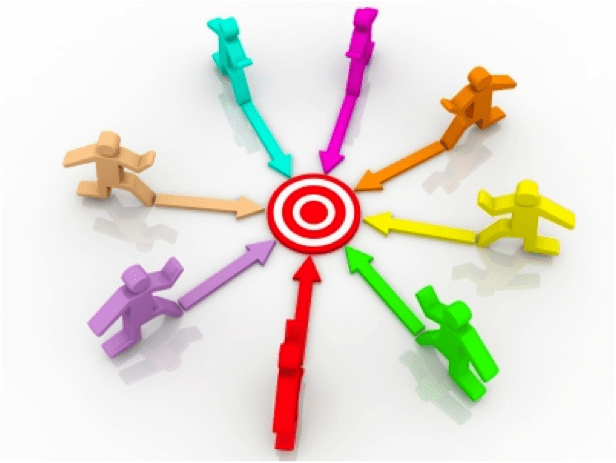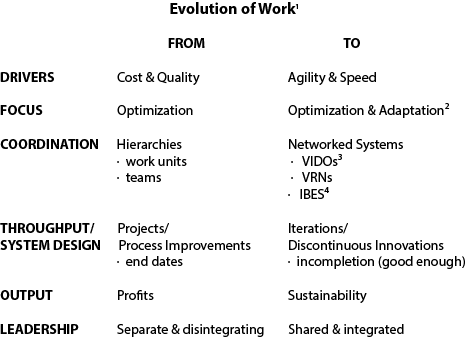Wherever we turn for learning and development, someone is writing about leadership. From a cursory “google” of the subject, I found at least three books written in the last three years all titled, “The Leadership Gap” alongside countless others addressing our ability to lead in these New Normal times of accelerated complexity, ambiguity and uncertainty. When so much attention is being paid to any subject, it is a clear indicator that, as a society, we are transforming our fundamental behaviours, beliefs and ways of being (sense of identity).
The New Normal context — of increased complexity and task demand combined with an organizational reality of not enough internal variety to manage both — requires a revolutionary transformation in how we think about and enact leadership within our organizational and community governance systems. Without the shared input and influence of all stakeholders (staff, customers, suppliers, shareholders, policy makers, etc.) across all levels of involvement, surviving (optimizing) and thriving (adapting through innovation) literally became too complex for one person or even an executive suite of people to effectively lead. In organizations one of the clearest examples of this complexity and demand challenge is between C-suite executives and their Gen X and Y staff. The senior ranks typically know more about the business environment and strategy, but the junior ranks know more about customer attitudes and technology — the latter of which have changed the type of work we do and how we do it.
A 2010 survey (Leadership Agility, ChangeWise and the Institute for Corporate Productivity) touted an agile leadership culture as the primary navigational tool in today’s New Normal business environment. In order to create a leadership culture agile enough to synergize and succeed, personal development in several capabilities is essential — (LA 360)
• context-setting and sense-making (a desired future, strategies, tactics)
• stakeholder engagement (participative governance)
• creativity (diverse perspectives)
• self-leadership (integrity, intuition, inspiration, initiative, compassion and continuous learning)
• pivotal conversations (feedback for both correction and praise)
• team development (leadership development at every level)
• leading change (participative whole system design)
These are the essential skills necessary to lead an organization and to lead in life, and this is why living in today’s world feels more challenging than the previous 10 or 20 years. In those and earlier decades, our human skill set for effective leadership produced expert-based (tactical problem solving) and achievement-based (strategic results) leaders to the tune of 45% and 35% respectively. The challenge today is to combine both these capabilities and evolve leaders into generation 3.0 catalysts (visionary facilitators) able to “articulate an innovative, inspiring vision and bring the right people together to transform vision into reality [all the while] empowering and actively facilitating their development.” We have our work cut out for us given the research above states “only about 10% have developed the mental and emotional capacities to lead at the Catalyst level.”
So what does this have to do with you, you might ask? Many of us not in organizational or community leadership roles may look at this statistic and assume it only applies to those in authority. They would be wrong. The real paradigm shift occurring in leadership is from command and control by a few to consensus amongst the many. In order for us to function effectively in a global culture and society of consensus, we all will need to evolve our leadership behaviours, beliefs and identities accordingly. The key to not becoming overwhelmed and burying our heads in the complexity sandbox is to take one small step forward at a time.
What small step can you take today to evolve into a social catalyst?
Sources:
¹Adapted in part from Stu Winby, Sapience Organizational Consulting.
²Optimization & Adaptation
³VIDOs
4IBES






